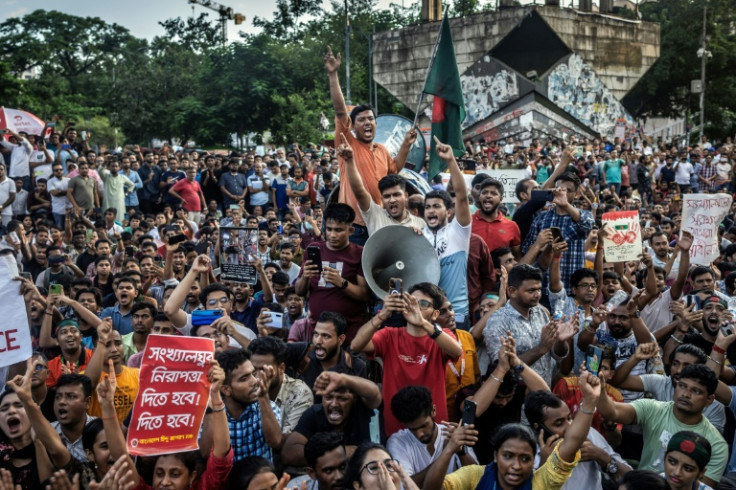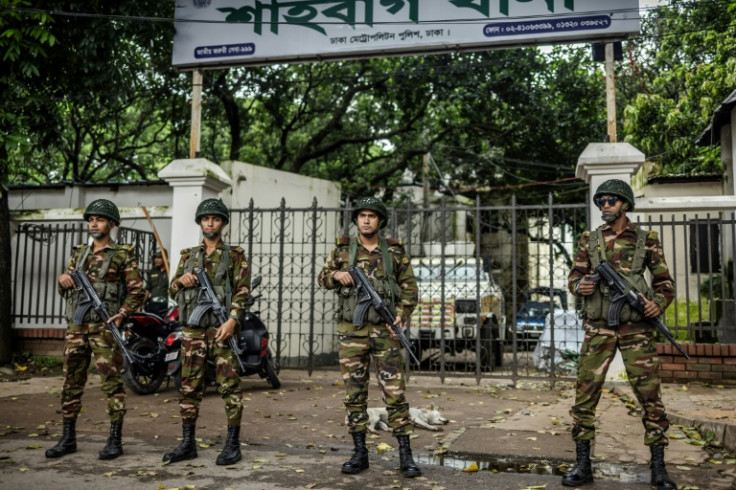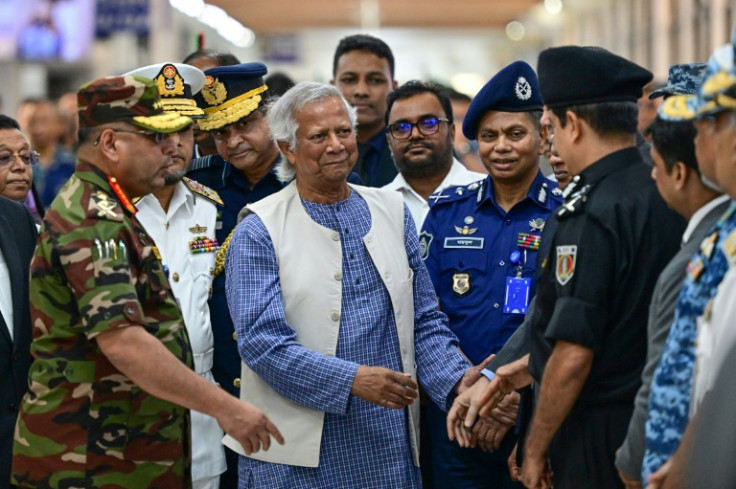
Bangladesh's interim leader Muhammad Yunus appealed for religious unity Saturday as he embraced the weeping mother of a student shot dead by police, a flashpoint in mass protests that ended Sheikh Hasina's 15-year rule.
Nobel laureate Yunus, 84, returned from Europe this week to helm a temporary administration facing the monumental challenge of ending disorder and enacting democratic reforms.
"Our responsibility is to build a new Bangladesh," he told reporters.
Several reprisal attacks against the country's Hindu minority since autocratic ex-premier Hasina's toppling have caused alarm in neighbouring India as well as fear at home.
"Don't differentiate by religion", he said.
Yunus called for calm during a visit to the northern city of Rangpur by invoking the memory of Abu Sayeed, the first student slain during last month's unrest.
"Abu Sayeed is now in every home. The way he stood, we have to do the same," he added. "There are no differences in Abu Sayeed's Bangladesh."
Sayeed, 25, was shot dead by police at close range on July 16 at the start of a police crackdown on student-led protests against Hasina's government.
His mother sobbed as she clung to a visibly emotional Yunus, who had come to pay his respects alongside members of the "advisory" cabinet now administering the country.
Fellow cabinet member Nahid Islam, a 26-year-old sociology graduate who led the protests that culminated in Hasina's ouster, wept by the leader's side.
Hasina, 76, fled by helicopter to neighbouring India on Monday as protesters flooded Dhaka's streets in a dramatic end to her iron-fisted rule.
Her government was accused of widespread human rights abuses including the extrajudicial killing of thousands of her political opponents.
In the immediate aftermath of Hasina's fall, some businesses and homes owned by Hindus were attacked, a group seen by some in Muslim-majority Bangladesh as having been her supporters.
Bangladeshi Hindus account for around eight percent of the country's population.
Hundreds have since arrived on India's border, asking to cross.
Hasina's flight has heightened rancour towards India, which played a decisive military role in securing Bangladesh's independence, but also backed her to the hilt.
Indian Prime Minister Narendra Modi on Thursday urged "safety and protection of Hindus and all other minority communities".
More than 450 people were killed in the unrest leading up to Hasina's departure, including dozens of police officers killed during clampdowns on demonstrations.
The caretaker administration Yunus helms has said that restoration of law and order is its "first priority".
Complicating its efforts are a strike declared Tuesday by the police union, saying its members would not return to work until their safety was assured.
Bangladesh's police force said more than half of the country's police stations had reopened by Saturday.
The buildings are being guarded by soldiers from the army, an institution held in higher public regard than the police for opting not to forcibly quell the protests.
Two attempted jailbreaks were staged at prisons north of the capital Dhaka this week, with more than 200 inmates fleeing one facility.
Yunus won the Nobel Peace Prize in 2006 for his pioneering work in microfinance, credited with helping millions of Bangladeshis out of grinding poverty.
He took office Thursday as "chief advisor" to a caretaker administration, comprised of fellow civilians bar one retired brigadier-general, and has said he wants to hold elections "within a few months".










